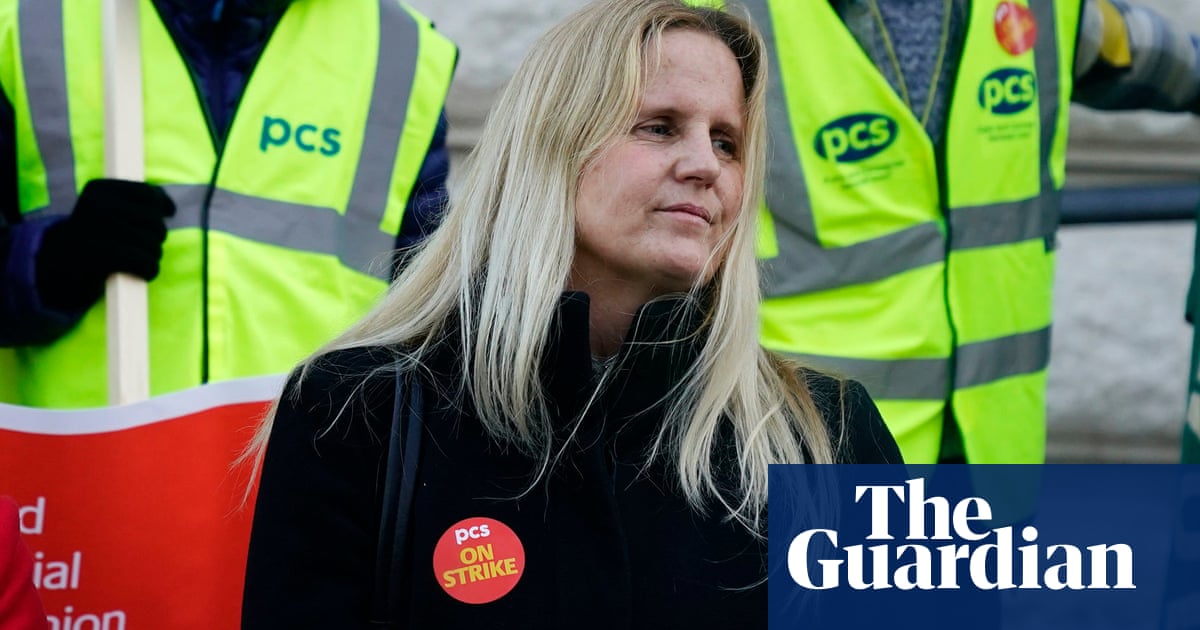
At lunchtime on Friday, Marie Bryant, 77, and her husband, Mervyn, 83, had no idea their Kent constituency had fallen to Labour. The couple from Folkestone had submitted their postal votes for the Conservatives weeks ago and were out shopping for pond cleaner.
Despite knowing the national result, the Bryants had assumed their seat had stayed blue. Their shock was palpable. “Oh my goodness!” Marie said, relaying the news to Mervyn. He was less restrained, barking: “God help us!”
Folkestone and Hythe had returned a Conservative MP in each election since its creation in 1950. It was so safely blue that for 27 years the seat belonged to the former Tory leader Michael Howard.
On Friday it was one of nine Kent seats that swung from the Tories to Labour. In most of these seats, Labour’s increase in the vote share was modest. Its wins were largely down to votes on the right being split between the Conservatives and Reform UK.
In Folkestone and Hythe, the Tories and Reform took 26% and 24% of the vote respectively, leaving a gap for Labour to win with 35%.
The Bryants’ new Labour MP has a lot to do to persuade them he can represent their interests. Mervyn acknowledged that the Conservatives had “made a right muck up” and said he had “only voted for them to keep Labour out”.
He said his priorities were the NHS and bringing down migration but he thought the Tories’ Rwanda plan was “complete rubbish”.
Tony Vaughan, their new MP, was only selected as a candidate six weeks ago and went into the race knowing, he said, that it would be “very difficult to win”. A barrister at Keir Starmer’s former chambers Doughty Street, Vaughan said on Friday that he had never met Starmer and was still processing the election news.
Vaughan said that having such safe Tory seats “breeds complacency” and that voters had seen through it.
“I think it’s got to the point where people have realised that it’s not great to have the same people running the show,” he said. “The reality is that people have been desperate for change. You can see that in the massive reduction in the Tory vote.”
In his seat, the Conservative share of the vote dropped by 30 points while Labour’s grew by just seven.
In the seat of Dover and Deal, which also fell to Labour, the issue of small boats crossing the Channel remains one of the biggest concerns.
John Baker, 36, lives with his mum on the Aycliffe estate, which is near Shakespeare beach where dinghies packed with people seeking new lives have frequently landed. “We see them running through the estate,” he said. “It’s a big thing around here.”
He said he couldn’t remember ever voting and didn’t this time, though he wants to see immigration tackled. Many of the most disfranchised voters turned to Reform this time around.
The seat was won by Labour while Reform beat the Conservatives into second place, taking 23% of the vote. The new Labour MP is Mike Tapp, whose CV includes work in the Intelligence corps and for the National Crime Agency. It was previously held by Natalie Elphicke for the Conservatives until she defected to Labour.
A few streets away from the seafront in Dover, the Xpresso cafe was packed with people having an end-of-week fry up. Not one of the people the Guardian spoke to had voted. One of the staff said: “I’m not into that politics crap.”
Rosemary Wilson, 55, who works as a school assistant, said she had not voted for about 20 years and that when she last did it was Conservative. Wilson said she had had to wait four years for a council flat, and that she had hoped the Rwanda plan “would’ve thinned out” immigration numbers.
She was not tempted by the traditional parties but said she could vote for Reform in the future. If people like her can be mobilised in the future, it could present a problem for Labour in a seat where voters predominantly support parties on the right.
In the drizzle outside Poundland in Dover, May Lucas, 82, was sanguine about the arrival of a Labour government. She had voted for them, as always, “because my dad was a miner and he said to”, but she did not have much faith in there being change. “Everything needs sorting out,” she said, particularly the NHS.
In Ashford, Labour’s Sojan Joseph ousted the former Tory minister Damian Green, who had held the seat since 1997. This is only the second time in the seat’s 139-year history that it has not gone to a Conservative (on the other occasion, a vicar won for the Liberals in 1929 and lasted two years).
Here, support for Reform is also significant. David Irvine, 55, from Ashford said his vote for Reform this time “was more of a protest vote than anything else”. He added: “If I thought realistically that Reform had a chance I wouldn’t have voted for them.”
Irvine, who works in sales and has a two-year-old daughter as well as two adult children, said: “I turned to the Tories last time but we’re both [he and his partner] working and we’ve seen our mortgage go up £700 a month because of Truss and her sidekick so I couldn’t bring myself to.”
He had also voted Labour in the past but was put off the party in the Jeremy Corbyn era because of his position on the military.
“Immigration is a big thing,” he said. “The tap has to be switched off at some point. I wasn’t for sending people to Rwanda, which was bizarre and scary and didn’t seem very compassionate at all.”
For some in Kent, the county turning red is a cause for celebration. For longer than Tina Moore’s Victorian terrace in Ashford has been standing, Conservative politicians have been the norm and her Labour vote has made no difference.
Moore, 43, who worked as a librarian before taking medical retirement after a multiple sclerosis diagnosis, was ecstatic to see Labour in power. She wants to see them improve disability benefits but for now she is savouring the moment.
“It’s exciting,” she said. “It’s nice to wake up and know I’ve contributed to a bit of change for once.”












